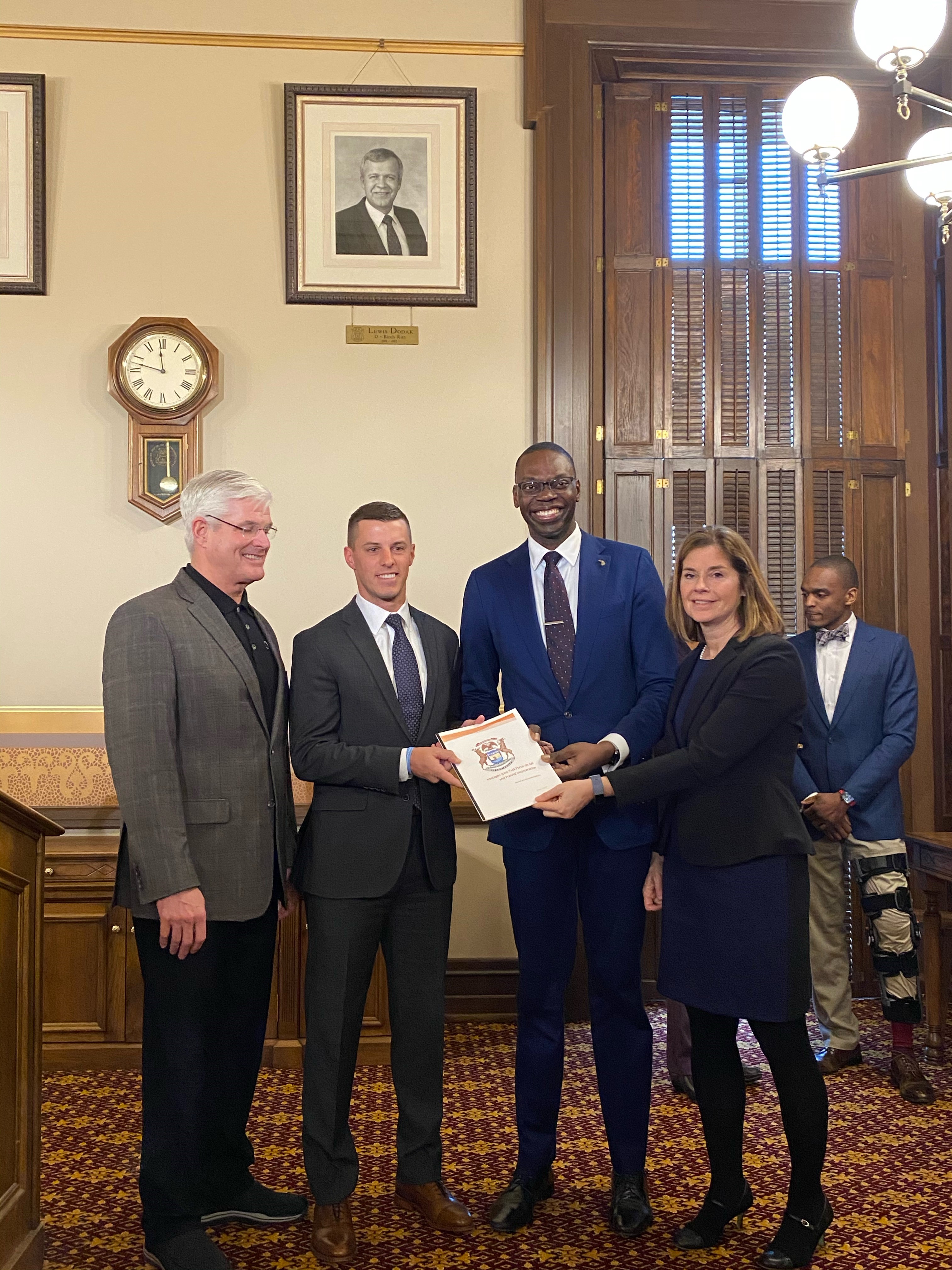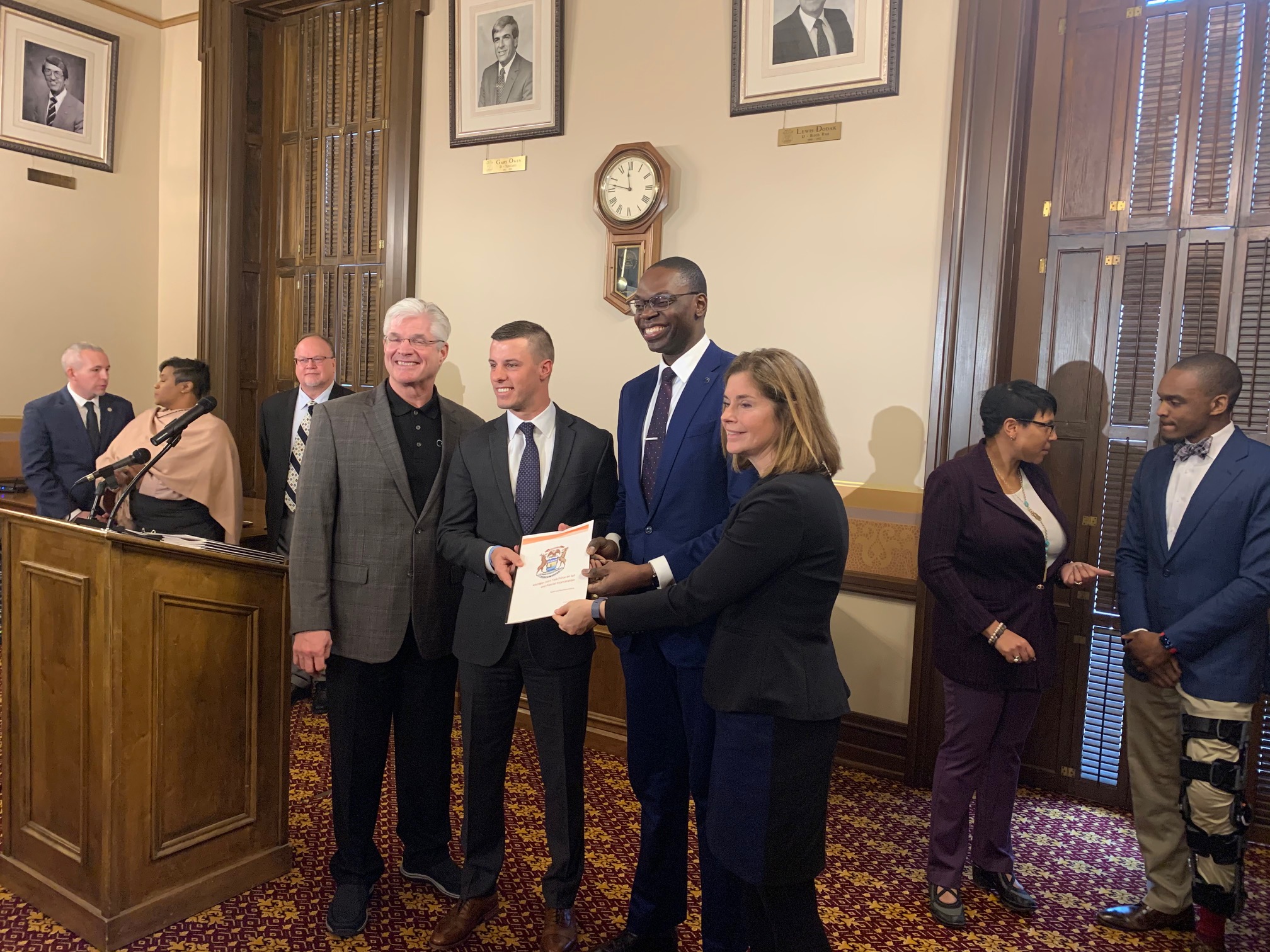In Michigan, our county jails are filled with thousands of people who have never been convicted of a crime and are presumed innocent. Many are there for days, weeks, months, or even, in a few extreme cases, years, waiting for their day in court. In fact, the jail population across the state has exploded, nearly tripling in the past 35 years, though crime rates have dropped to 50-year lows, according to a new report released this week by the Michigan Joint Task Force on Jails and Pretrial, a culmination of months of research, public testimony, and a commitment to fixing a tragically-flawed system that primarily punishes the poor and people of color. Along with the stark picture this report details is a clear guide on what could and should be done to overhaul the system, a guide that the ACLU of Michigan fully endorses.
Included in the 47-page report are 18 recommendations for reforming a system that is not only unconstitutional, but disastrous, as studies have shown that just three days in jail puts a person at risk of losing their home, job, and custody of their children. The catastrophic consequences of arresting and jailing people while they wait for their case to go to trial is also a key driver to mass incarceration. Reforming the ‘pretrial’ system – the time between when a person is arrested and their case goes to trial – is also a critical component of our Smart Justice campaign, which aims to cut incarceration in half and advance racial justice in the criminal legal system.
Nearly a year ago, government, law enforcement and community leaders came together to take on the challenge of overhauling the pretrial system. They set out to ask these three questions: Who is in Michigan’s county jails? How long have they been there? And Why? To answer these questions, the Task Force, co-chaired by Lt. Gov. Garlin Gilchrist II and Chief Justice Bridget McCormack, enlisted the help of the Pew Charitable Trust to help collect and analyze 10 years of arrest data from more than 600 law enforcement agencies, 10 years of court data from nearly 200 district and circuit courts, three years of 20 county jail admissions, as well as conduct hundreds of interviews, and hold six public forums around the state where residents could testify.
The ACLU of Michigan, which participated in every Task Force forum, and has pushed for pretrial reform for two years, also enlisted dozens of community members to share their expertise and personal stories. One such story came from Kamal Lukata Anderson, who was in and out of jail for misdemeanor driving offenses like having a loud muffler. Unable to pay his bail and related fines, he was locked up for days and weeks, which lead to lost jobs, family problems and endless financial trouble.
Mr. Anderson is just one of thousands around the state, who are punished for being poor. And one of thousands of Black men who comprise the majority of people who suffer from our broken and racist pretrial system. Black men made up 29 percent of jail admissions of the 20 county jails included in the study, but only six percent of the total resident population for those same counties.
The study also found that the most common reason Black people are jailed was for driving without a valid license—an action that is often the direct result of the inability to afford a driver’s license. This charge accounted for almost a third of jail admissions. Among the 18 recommendations, the reclassification of most traffic offenses as civil infractions will be a giant step in ending the criminalization of Black people and low-income communities by eliminating unfair and unnecessary punishments of drivers, like Mr. Anderson, for behavior unrelated to road safety.
But perhaps one of the most exciting reform recommendations is strengthening the presumption of release while awaiting trial. For a judge to decide to lock a person up, there would have to be clear evidence that they are either a flight risk or danger to their community. The judge must also consider a person’s ability to pay bail when setting bail. This reform would mean that thousands of people would be able to return to their families and jobs while they wait for their case to go to trial. This would go a long way towards making our communities safer as studies have shown that holding a person in jail during the pretrial period actually increases the possibility of recidivism. If we want to ensure that our communities thrive, our criminal legal system should remove all obstacles that keep people from returning home to their families and their jobs.
Not surprisingly, the Task Force report also concluded that jails are not equipped to treat people who suffer from a mental illness. It also found that 23 percent of those admitted to Michigan jails had a serious mental illness, with higher percentages in rural counties. This population also tends to stay in jail longer than people facing similar charges without a serious mental illness, the report said. Instead of spending taxpayer dollars to jail people who have a mental illness, that money would be better invested in support services and mental health diversion programs that will set people up to lead healthy and successful lives. The Task Force report agrees and recommends providing support for behavior health diversion programs and increasing alternatives to jail.
We are extremely grateful to the commitment and work that has been done to put in stark relief what we already knew was a dysfunctional system, but the work does not end with a report. We must call on our legislators to adopt these recommendations into law. Join us in advocating for a Michigan that is fair and just by joining our Smart Justice campaign. Please sign up to volunteer here. Together, we can all reform the pretrial system.

